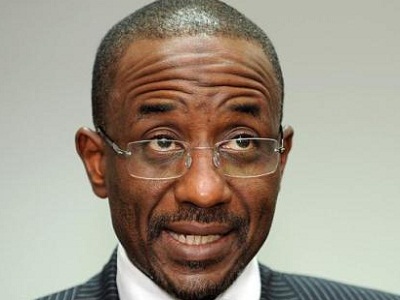The office of the governor of the Central Bank of Nigeria (CBN) is embroiled in a web of claims and counter charges as the presidency has reportedly asked Mallam Sanusi Lamido Sanusi, the governor to resign over the leakage of his letter alleging non-remittance of $49.8 billion oil revenue to the Federation Account by the Nigerian National Petroleum Corporation (NNPC).
Sanusi on his part has reportedly insisted he will leave office on June 2 this year and not before that date
Nigeria CommunicationsWeek cannot independently confirm the presidential directive but some sections of the media reported that President Goodluck Jonathan accused Sanusi of leaking the confidential letter to former President Olusegun Obasanjo.
The leaked letter formed a major flank of Obasanjo’s recent open letter to the president entitled, “Before It Is Too Late.”
According to reports, President during a heated telephone conversation with the CBN governor accused him of disloyalty and asked Sanusi whose terminal leave begins in March, to tender his resignation before the close of business last Tuesday.
Sanusi, however, denied leaking the letter and was reported as saying it could have been leaked from the Presidential Villa where he directed it or at the Federal Ministry of Finance where copies were available.
In addition, he reportedly told the president that since his job was a tenured one; he could only be removed by two-third of the Senate and not by the President.
Elsewhere, the apex bank Thursday confirmed that Mallam Sanusi Lamido Sanusi , governor of the apex ban will leave office on June 2 this year.
Mr. Ugo Okoroafor, CBN’s spokesman, said Sanusi held a “family meeting” with staff of the bank and told them that he was no longer proceeding on “terminal leave” but will serve out his tenure in office as CBN governor till June 2.
He spoke to journalists at the end of a press briefing on the execution of the Payments System Vision 2020 (PSV2020) Strategy, in Abuja.
Reports indicated that the CBN governor had agreed to proceed on “terminal leave” in March following the fiasco generated by the report of the allegedly missing $49.8 billion that was supposed to have accrued to the federation account.
However, Okoroafor, has dismissed the report, saying the “terminal leave” if it was ever in the offing was no longer feasible as Sanusi has resolved to leave office in June 2.
Earlier, the apex bank said that it has introduced a new payment system called Real-Time Gross settlement (RTGS) system as part of efforts to implement Payment System Vision (PSV) 2020 strategy.
Tunde Lemo, outgoing CBN’s deputy governor (Operations), made this known while briefing journalists on yesterday in Abuja.
Lemo, who is expected to proceed on retirement on January 11, said that CBN put live operations to the new system on December 16, 2013.
He said the new RTGS was integrated with Scrip less Security Settlement System (SSSS) and would replace the old payment system in use since seven years ago.
“The SSSS, on the other hand, is a new initiative to issue, manage and settle government and other money market securities processed as electronic records in a Central Securities Depository (CSD) system.”
He explained that the RTGS was an inter-bank payment infrastructure that was facilitating the real time settlement of electronic funds transfers on gross and irrevocable basis.
Lemo said that RTGS was built on swift standards to allow for safer, easier and faster inter connectivity with other payment system infrastructure both locally and internationally.
“It serves as the nucleus of the national payment system, as all payments finally settle in central bank money through settlement accounts maintained for designated financial institutions.”
On SSSS, he said it would facilitate the electronic management of the entire life cycle of securities transactions.
He said the system would manage the primary and secondary market securities and facilitate efficient open market operations.
















































